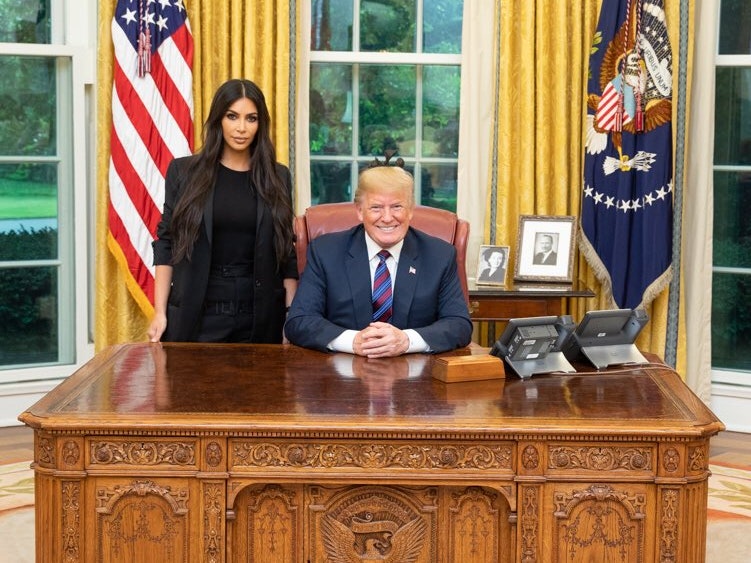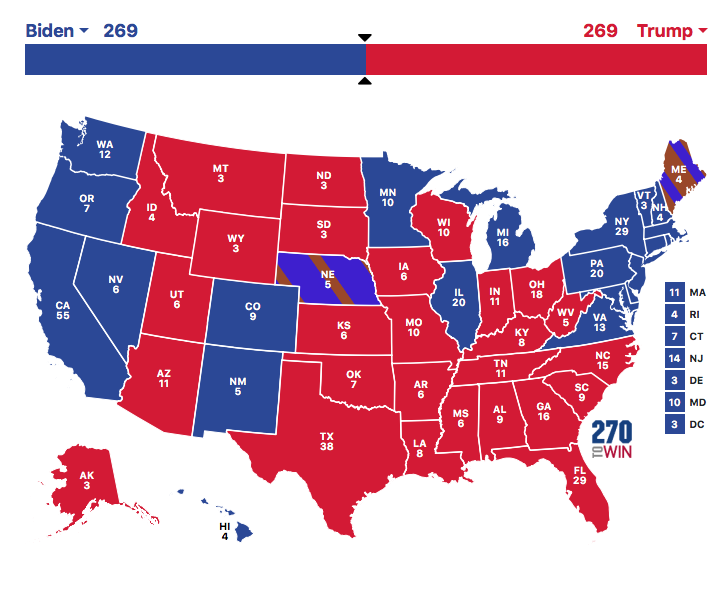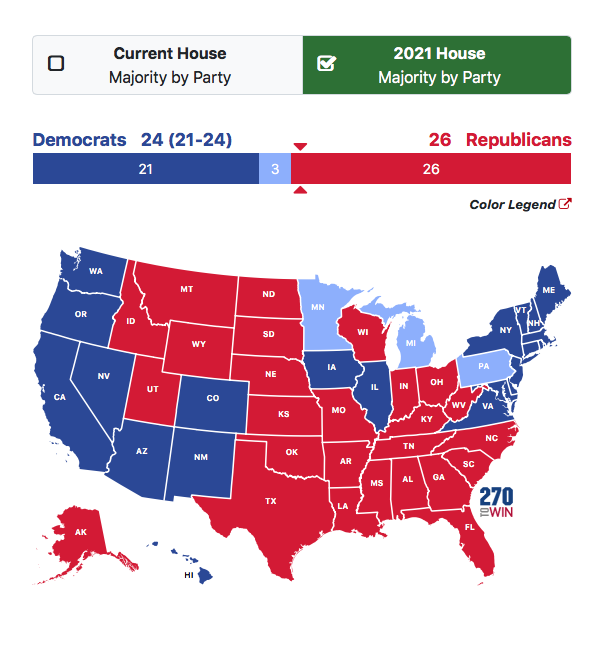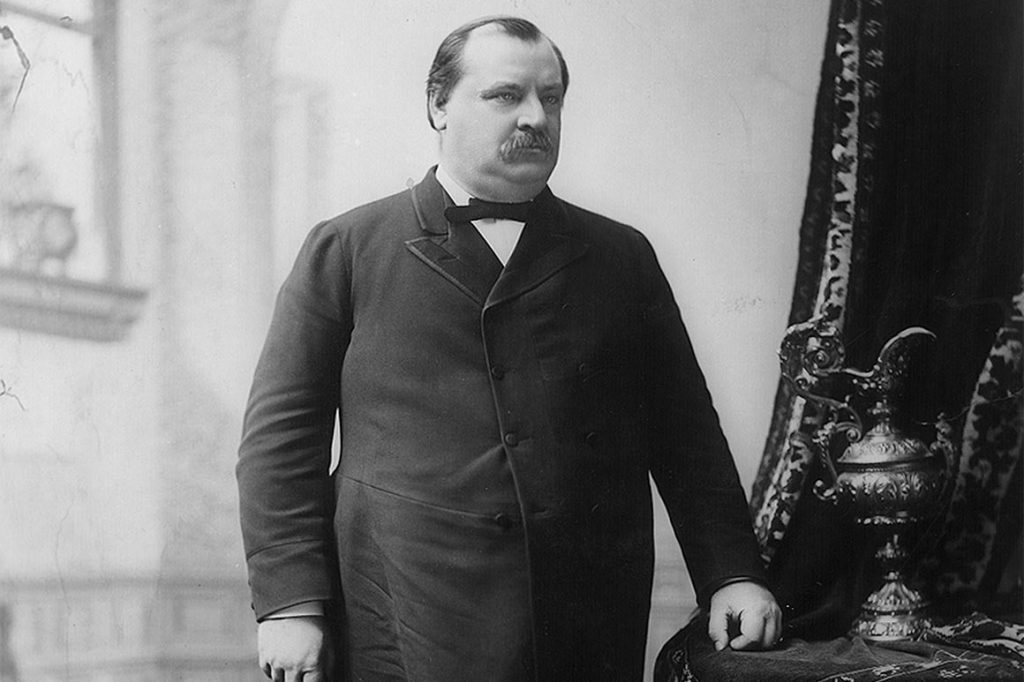
You’d be forgiven for thinking the election is over, judging by the media flashing “THE ELECTION IS OVER” headlines for many weeks now.


The situation on the ground of course, is far different. “Stop the Steal” rallies have caught fire across the country, from Atlanta to Phoenix, galvanizing support for an accurate tally of votes in the states (PA, GA, MI, WI, AZ, NV) in question.
In any normal election, these vote counts would be close enough to trigger automatic recounts, audits, investigations, legal challenges, and so on.
But it’s the 2020 Presidential election, and one of the people on the ballot is the media’s archenemy, the bête noire of polite society himself, the former host of the Celebrity Apprentice and the current user of the Resolute Desk, President Donald Trump.

To give you an idea, 2016 had the following vote gaps:
And you’re telling me the man who received 306 electoral votes in 2016, faced 4 years of “Russia!” collusion garbage because of those vote successes, received 11 million more votes in 2020, and outperformed every minority group compared to any Republican candidate in the past 60 years wouldn’t win those states by a landslide this time?
Let’s get back to that current alleged vote gap:
Arizona: Trump -10,457
Georgia: Trump -12,670
Wisconsin: Trump -20,695
Let’s say those are investigated, and even a tiny amount of fraud is uncovered. Going into this election at least 1% of mail-in ballots were expected to be rejected, and with a record 92 million requested this year, that’s nearly 1 million ineligible ballots.

Flipping the three states with a 10-20k vote difference (well within the boundaries of fraud and ineligible ballots) results in the gorgeous map above, a second-in-history electoral college tie (the first being The Election of 1800, resulting in a complicated process where Thomas Jefferson was finally elected President on February 17, 1801).
In a 269-269 tie, each state gets one vote in the House of Representatives, and here’s where it gets really interesting: Trump wins.

And that’s not even counting legal filings in the six states in question (PA, GA, MI, WI, AZ, NV) – any of which could be bumped up to the Supreme Court.
This entire process makes many Republicans extremely uncomfortable, not least of which it calls into question both past and future elections. Were those close House races truly that close? Should they have challenged the results when it got close, like with Norm Coleman (100-200 votes)? Why did they allow mass mail-in voting in doomed-to-be-close states like PA? Per an outlier to the above Republicans, Sen. Ted Cruz:
The Pennsylvania Constitution requires in-person voting, except in narrow and defined circumstances. Late last year, the Pennsylvania Legislature passed a law that purported to allow universal mail-in voting, notwithstanding the Pennsylvania Constitution’s express prohibition.
And that’s just hindsight – suppose the situation becomes dire and these Republican lawmakers have hitched their wagons to the Trump train? Then what, they’d have to, God forbid – take some kind of a stand?
This current annoyance with Trump among elected Republicans ignores the looming specter of Trump 2024.
Imagine: a New Yorker anti-interventionist/immigration president serves one term, loses election with shady voting practices in at least one state but promises to return, comes back and challenges hobbled successor, wins second, non consecutive term.

You’d be forgiven for thinking Trump would be the first to do that, but it was actually Grover Cleveland, our 22nd and 24th President.
Not only would Trump over the next four years out of office grow louder and angrier, he’d bring 74 million (and counting!) voters plus a few million extra who felt he got screwed over the last time.
Trump could get all the media attention he wants, pick apart every move of the Biden (and likely Harris) administration, and have an absolute tailwind to swoop into 2024, at Biden’s current age, all against a tumbledown Democratic field.
As long as the Trump coalition remains the central force in American politics, reconciling the country to a Biden presidency will be difficult. But reorienting the Democratic Party may be harder….[if Biden] doesn’t secure a base within his own party, he risks radicalizing Republicans and Democrats alike.
The Democratic field, per the above piece, is splintered among three coalitions: “the new economy” (billionaires and self-funders), “socialism” (Bernie, Warren), and “civil rights” (minority box checkers). Curiously, they’re led by Biden, someone who’s resolutely opposed to all three, without the gusto or vision to hold them together.
Republicans and others on the right silently (and increasingly loudly) wishing Trump would just go away do so at their peril.






